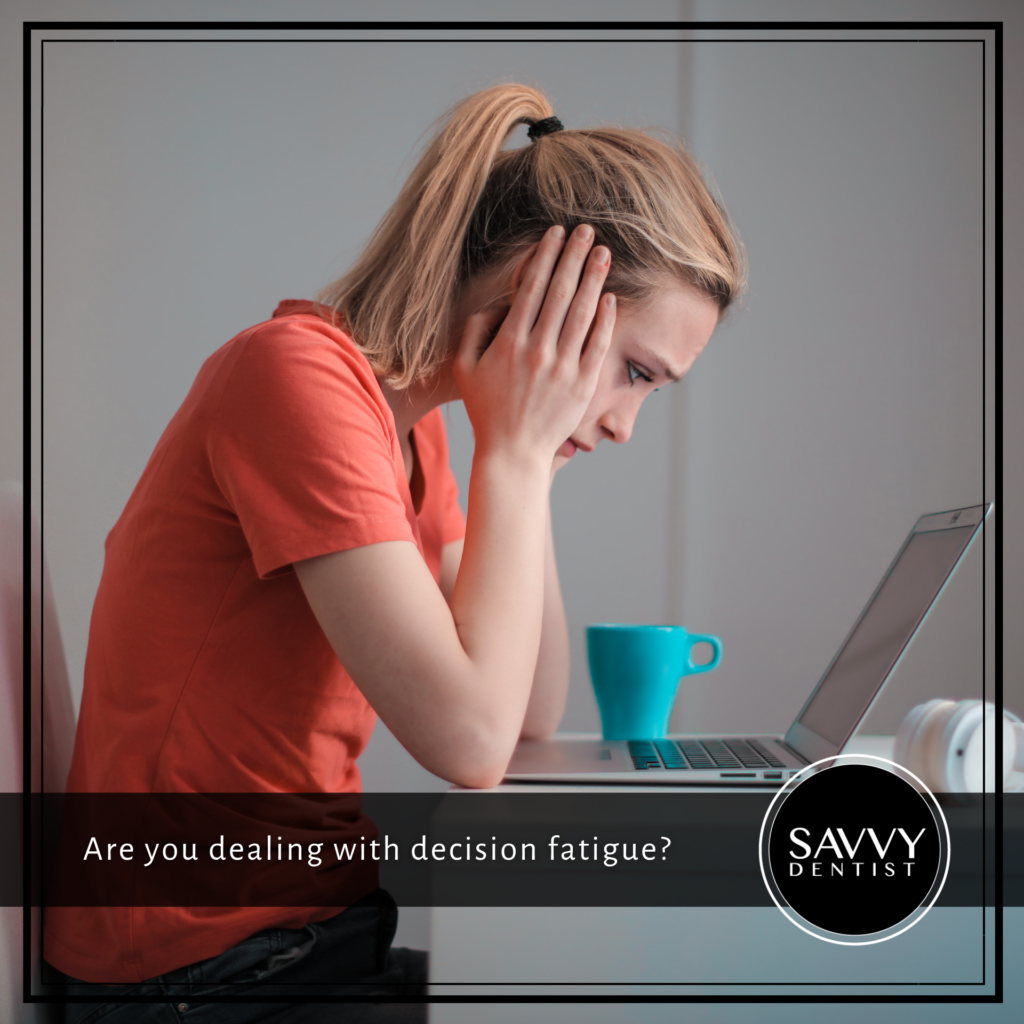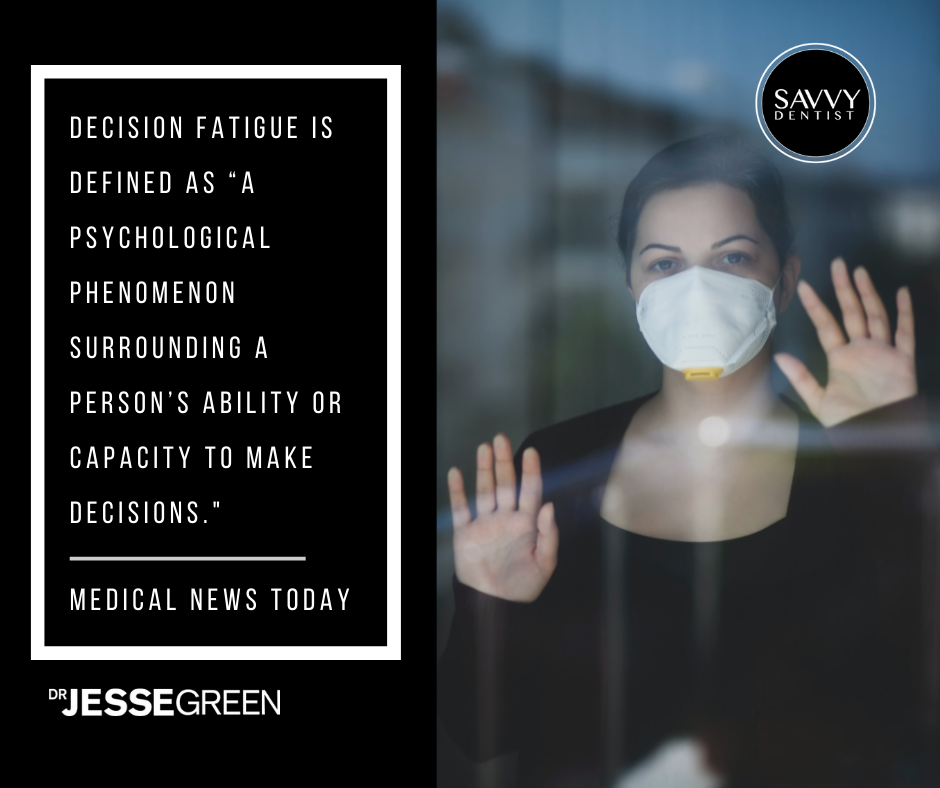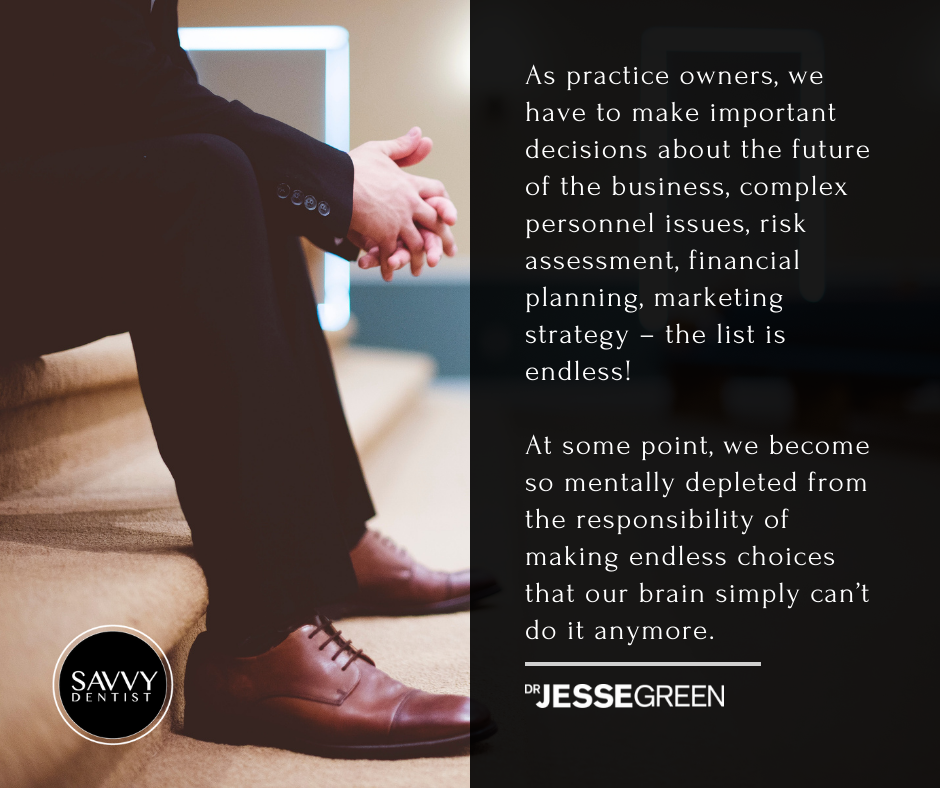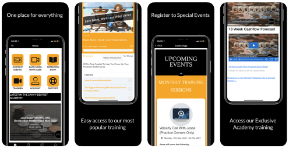The term “decision fatigue” was first coined by social psychologist, Dr. Roy Baumeister, after his study in the field of mental discipline.
Decision fatigue is defined as “a psychological phenomenon surrounding a person’s ability or capacity to make decisions.”
Simply put, it’s when you become so mentally exhausted you struggle to make decisions.
You might have observed this in your own personal or professional life, where you hit a sort of wall and it becomes difficult to problem-solve, make choices with conviction, or even make tiny decisions like what to have for dinner.
How decision fatigue shows up in our lives
The theory goes that we all have a finite capability for making decisions each day – which is in turn affected by our stress and energy levels.
Once we wake up and go about our day, we’re faced with a lot of decisions. What to wear, what to eat, how we respond to emails and phone calls and requests… and then the heavy stuff kicks in.
As practice owners, we have to make important decisions about the future of the business, complex personnel issues, risk assessment, financial planning, marketing strategy – the list is endless!
At some point, we become so mentally depleted from the responsibility of making endless choices that our brain simply can’t do it anymore.
That’s when we reach decision fatigue. And it’s not just a question of “pushing through” or whether you have enough willpower, it’s a measurable phenomenon.
What the studies show…
Research and studies into decision fatigue actually began when Jean Twenge began working in a lab shortly after planning her wedding. Of course, there are numerous decisions, both minor and major, involved in wedding-planning which leaves one feeling very mentally exhausted.
Twenge replicated this by asking students to make a series of tiny decisions around which object they would like to keep from a selection (would they like the pen or candle? An almond or vanilla scented candle? A vanilla scented candle or a t-shirt? A red or black t-shirt? Etc). After an extended amount of time making these decisions, participants were less able to solve simple maths problems and quit earlier in tests of willpower – like holding their hand in a glass of ice.
The findings of Twenge’s studies have sparked a lot of conversation and brought awareness to the phenomenon of decision fatigue.
How can you reduce decision fatigue?
The first thing you can do to reduce decision fatigue starts with increasing your mental energy from the outset. Good sleep, hydration, nourishment, time for rest and leisure, and reducing stress all play a part in “filling our cup” so that we give ourselves as much energy as possible each day.
The next thing to consider is how you can reduce the number of decisions you have to make. I’m sure after years of dentistry and practice ownership, you can already appreciate the magic of scheduling, planning, and organisation. In order to eliminate a number of smaller decisions, you an even plan seemingly menial things in advance like what you wear, what you eat, what exercise you do etc. The research shows these don’t hit has hard as bigger decisions, but it can lighten the load.
However you’re going to see the biggest results when you can offload or at least reduce the number of highly important, significant decisions you have to make. This is where systems and automations in your practice can make a world of difference, along with regular company planning to give you a blueprint to follow, and then of course delegation and training others up on tasks.
Interested in learning more about mindset and productivity? We have a tonne of great podcast episodes with psychologists, couches, and productivity specialists that can help you out.
[button link=”https://savvydentist.com/podcasts/” type=”big” color=”orange” newwindow=”yes”] Listen to Savvy Dentist Podcast[/button]
P.S Want to scale your dental practice and take your profits to 7 figure success?
Me and my team can work with you directly to get you there! Simply book in your FREE 1:1
strategy session, and we can get started on a game plan for you and your practice.





